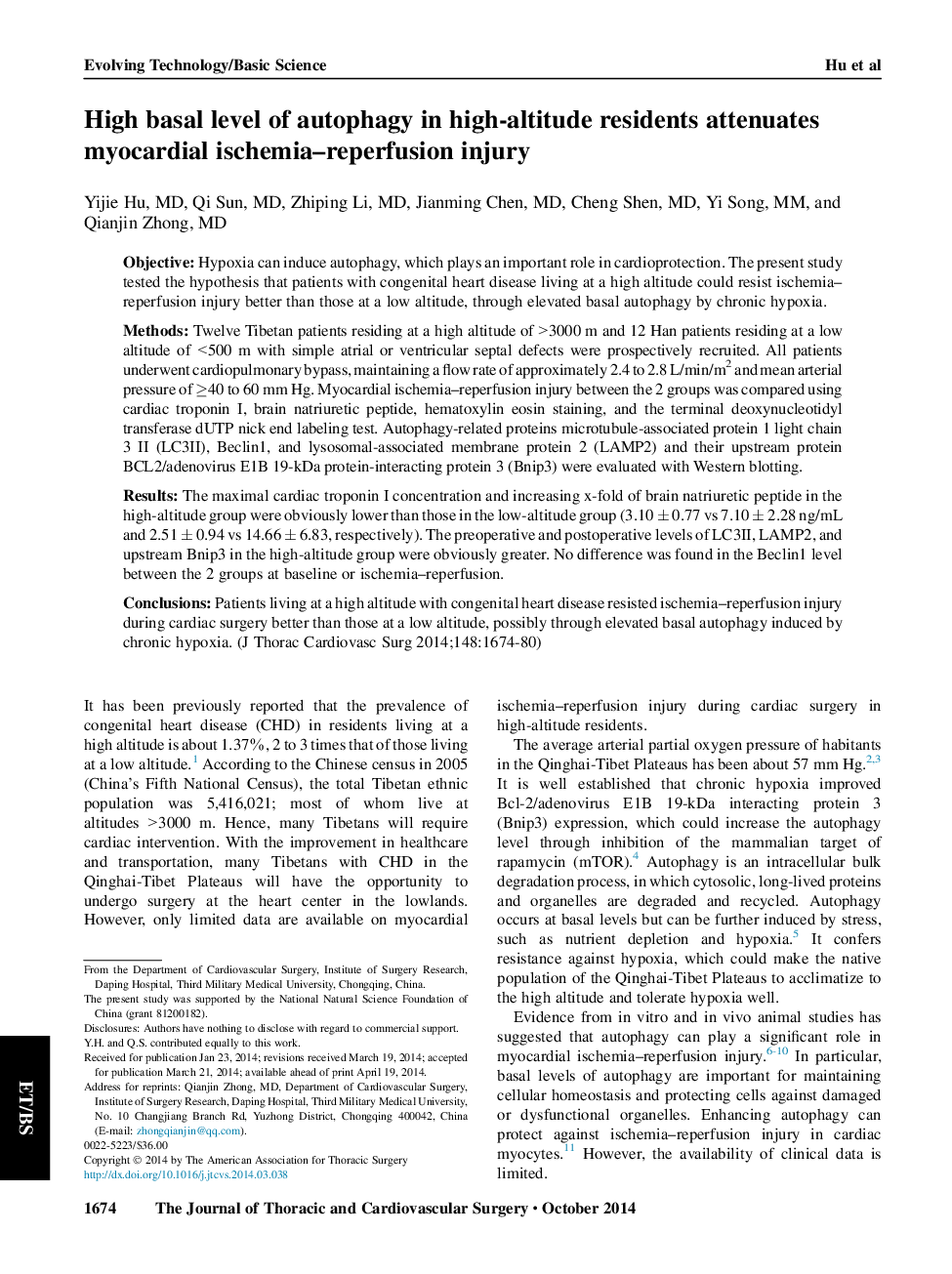| کد مقاله | کد نشریه | سال انتشار | مقاله انگلیسی | نسخه تمام متن |
|---|---|---|---|---|
| 2980435 | 1578606 | 2014 | 7 صفحه PDF | دانلود رایگان |

ObjectiveHypoxia can induce autophagy, which plays an important role in cardioprotection. The present study tested the hypothesis that patients with congenital heart disease living at a high altitude could resist ischemia–reperfusion injury better than those at a low altitude, through elevated basal autophagy by chronic hypoxia.MethodsTwelve Tibetan patients residing at a high altitude of >3000 m and 12 Han patients residing at a low altitude of <500 m with simple atrial or ventricular septal defects were prospectively recruited. All patients underwent cardiopulmonary bypass, maintaining a flow rate of approximately 2.4 to 2.8 L/min/m2 and mean arterial pressure of ≥40 to 60 mm Hg. Myocardial ischemia–reperfusion injury between the 2 groups was compared using cardiac troponin I, brain natriuretic peptide, hematoxylin eosin staining, and the terminal deoxynucleotidyl transferase dUTP nick end labeling test. Autophagy-related proteins microtubule-associated protein 1 light chain 3 II (LC3II), Beclin1, and lysosomal-associated membrane protein 2 (LAMP2) and their upstream protein BCL2/adenovirus E1B 19-kDa protein-interacting protein 3 (Bnip3) were evaluated with Western blotting.ResultsThe maximal cardiac troponin I concentration and increasing x-fold of brain natriuretic peptide in the high-altitude group were obviously lower than those in the low-altitude group (3.10 ± 0.77 vs 7.10 ± 2.28 ng/mL and 2.51 ± 0.94 vs 14.66 ± 6.83, respectively). The preoperative and postoperative levels of LC3II, LAMP2, and upstream Bnip3 in the high-altitude group were obviously greater. No difference was found in the Beclin1 level between the 2 groups at baseline or ischemia–reperfusion.ConclusionsPatients living at a high altitude with congenital heart disease resisted ischemia–reperfusion injury during cardiac surgery better than those at a low altitude, possibly through elevated basal autophagy induced by chronic hypoxia.
Journal: The Journal of Thoracic and Cardiovascular Surgery - Volume 148, Issue 4, October 2014, Pages 1674–1680